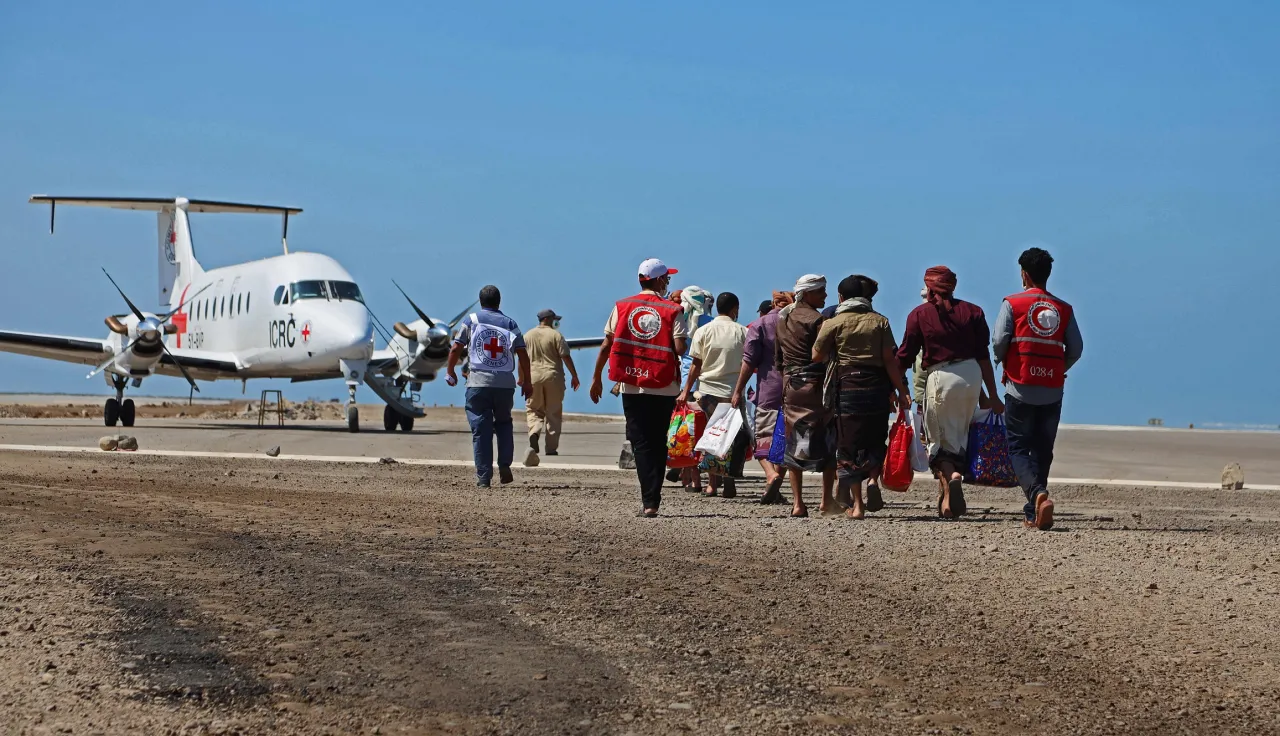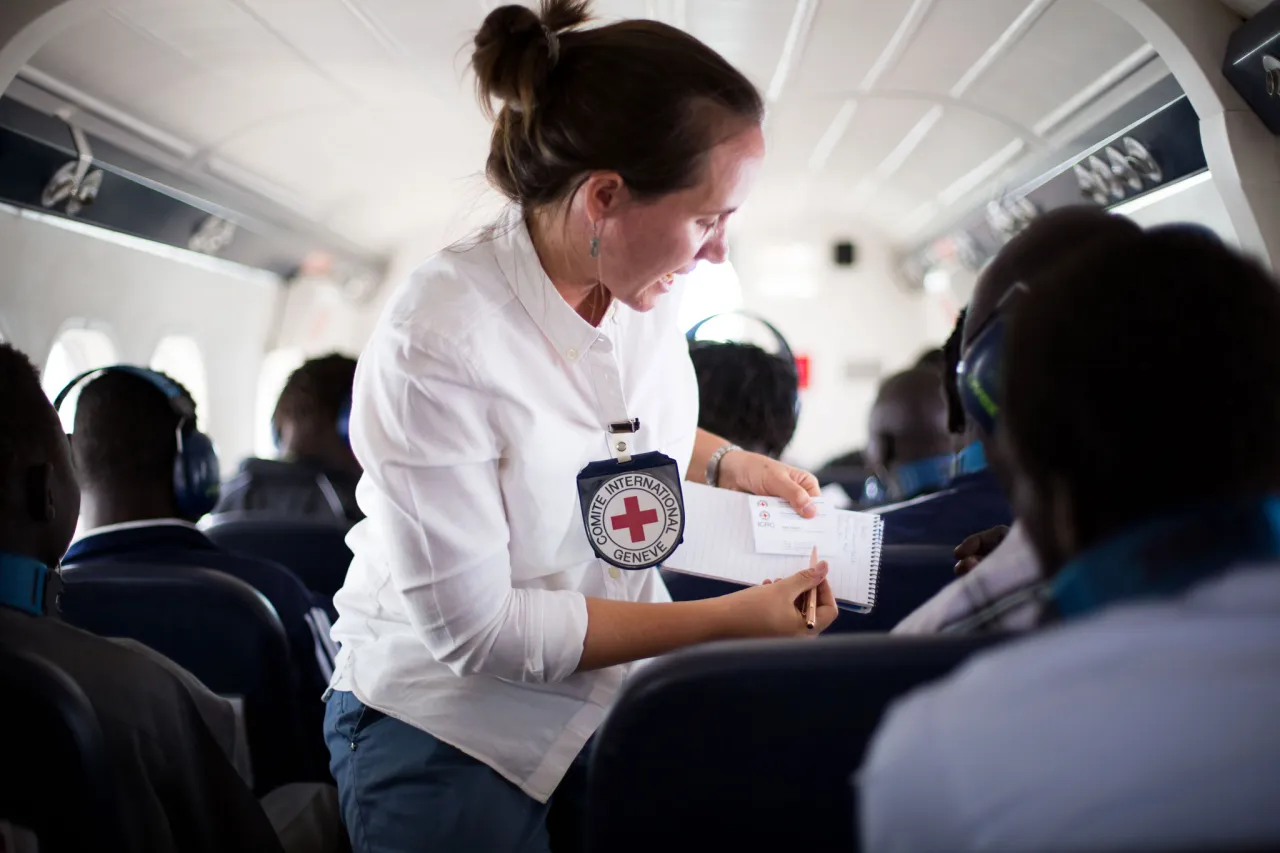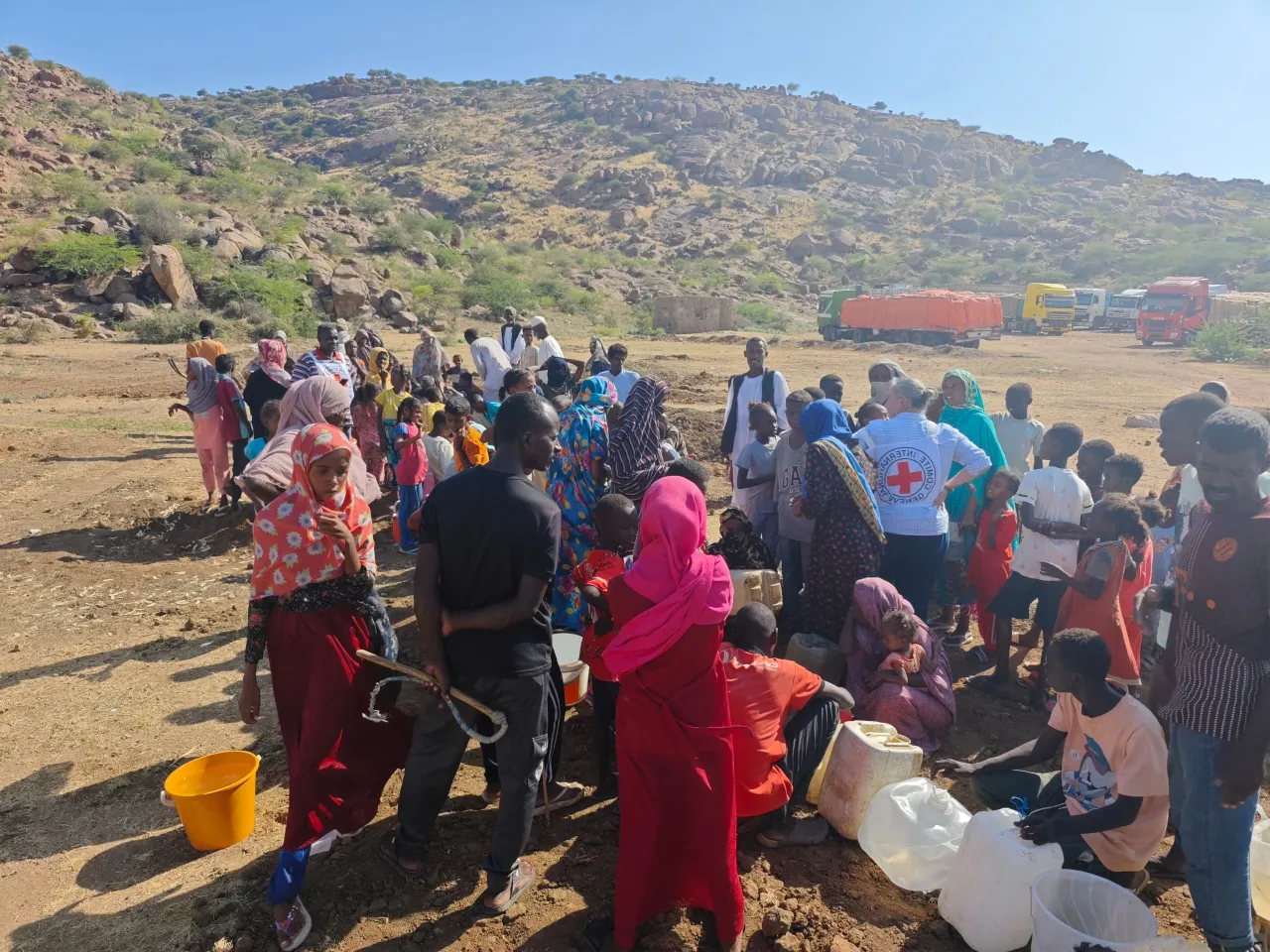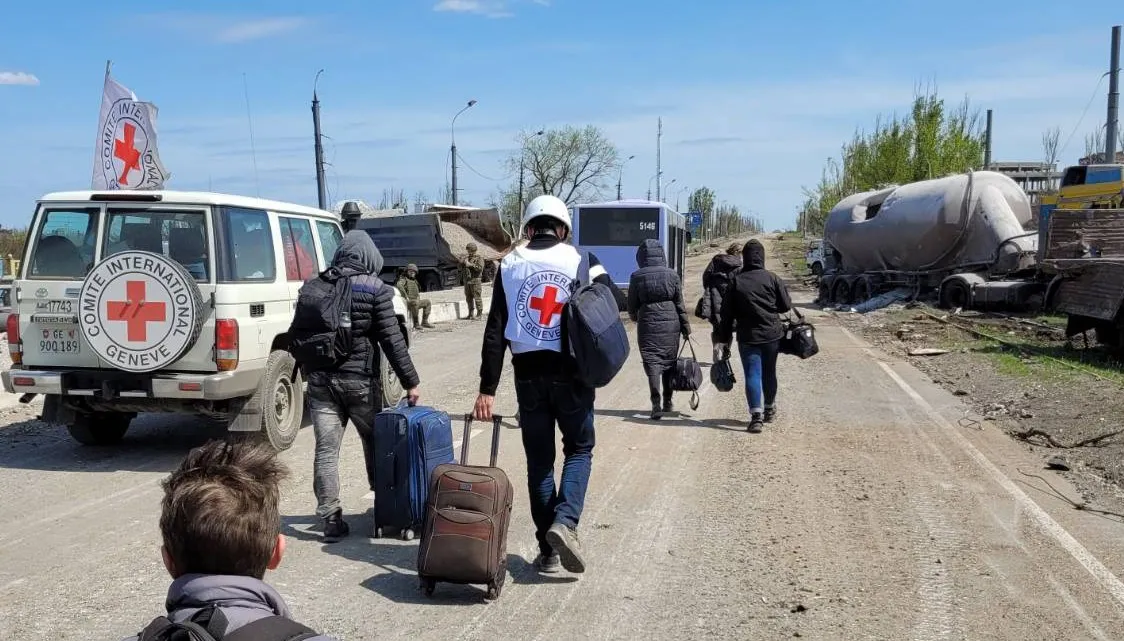Access beyond front lines: How neutrality in conflict helps us reach those who need us most

As a humanitarian organization, our job at the International Committee for the Red Cross (ICRC) is to help people affected by conflict, regardless of who they are. We carry out this work in some of the world’s most challenging environments and it is our commitment to the principle of neutrality that gives us access to those who need help. It means we are able to act as a bridge between opposing parties, focusing solely on the needs of the people whose lives are impacted and how we can get to them to provide life-saving assistance.
For more than 160 years, we have held the principles of neutrality, independence, and impartiality. Neutrality is not a concept that is always understood but we see it, in short, as the this most pragmatic approach that allows us to help the most people.
Not passing public judgement on who's right or wrong allows us to keep dialogue open with warring parties on both sides. Because we do not choose a side - other than that of the people we're here to help - warring parties on both sides trust us to do the right thing for their civilians and prisoners of war, without bias. When we refrain from adding our voice to the chorus of public denunciation, warring parties are more inclined to open doors that remain closed for others.
This approach generally gives us the widest possible access both to the victims of the violence and to the actors involved - to help and to influence. We are able to reach people on all sides of the front lines in active conflict areas around the world.
Being neutral doesn't always work, but experience has shown that it is what works best.
In war and armed conflict, people need humanitarian assistance, families become separated and need to be reunited, prisoners of war need to be taken home. Being neutral allows us to provide this kind of vital support to civilians in contemporary conflicts.

Neutrality in action
In October 2020, a milestone in humanitarian efforts took place when the ICRC facilitated the repatriation of over 1,000 detainees in Yemen. This event was not an isolated incident but part of a long history in which the ICRC has assisted parties to conflicts in facilitating release and exchange of prisoners, the repatriation of human remains, and other humanitarian efforts worldwide.
Acting as a third party, the ICRC ensures the implementation of humanitarian agreements, facilitates safe passages, and protects detainees and civilians.
When neutrality reunited families
Reuniting families and addressing the fate of missing persons
One of the ICRC’s most significant roles as a neutral intermediary is reuniting families separated by conflict. Over the past decades, we have facilitated the exchange of Red Cross messages to help people stay in touch, arranged delivery of documents, repatriation of people who have been forced to leave their home country or deprived of their freedom, and facilitated the transfer of mortal remains, giving answers to countless families of the missing.
- In the Armenia-Azerbaijan conflict, families were able to find out the whereabouts and fate of their missing loved ones when the ICRC acted as a mediator in the retrieval of missing persons and the exchange of detainees.
- In the Eritrea-Ethiopia conflict, families were reunited when the ICRC was able to facilitate the repatriation of prisoners of war.
- In the Ethiopia-Tigray Conflict, those separated from their families were reunited as the ICRC was involved with facilitating the return of detainees.
- In the Iran-Iraq and Iraq-Kuwait wars, the fate of thousands of missing persons was clarified following decades of tripartite commissions facilitated by the ICRC.
- In the Russia-Ukraine armed conflict (2022-present), the ICRC was able to provide news to over 12,500 families on both sides of the frontlines about the fate and whereabouts of their loved one. Tens of thousands of more families are still waiting for information.
When neutrality brought POWs home
Facilitating the release and exchange of prisoners of war and detainees
The ICRC plays a crucial role in negotiating and ensuring the humane treatment of detainees in conflict zones.
- In Yemen in 2020, detainees from both sides of the conflict were released and returned to their homes and families after the ICRC facilitated negotiations between parties - a critical step in confidence-building efforts. These release operations have been repeated over the intervening years (with 153 detainees released with the support of the ICRC in January 2025).
- In the Russia-Ukraine armed conflict, thousands of POWs have been visited on both sides since the escalation of hostilities in 2022. ICRC conducts visits in order to monitor the conditions of detention and exchange family news. We have been able to share nearly 13,000 personal messages between POWs and their families.
- In Colombia, individuals held my armed groups for decades were able to return to their families after the ICRC facilitated their release.
- In Sudan, Mali, and Senegal, people released by armed groups far from home were safely transferred back to the relevent authorities by the ICRC.
When neutrality saved lives of civilians in conflict
Evacuations and humanitarian assistance
The ICRC ensures the safe passage of civilians, medical personnel, and humanitarian aid.
- In Israel and the occupied territories, the ICRC has coordinated the transfer of medical patients, facilitated family reunifications, and negotiated humanitarian corridors.
-
In the Russia-Ukraine international armed conflict (2022-present), the ICRC facilitated the safe passage of civilians from Mariupol, including the Azovstal steel plant, in the early stages of the armed conflict. Throughout the duration of the armed conflict, the ICRC has been facilitating the safe passage of vulnerable people across international borders in both directions to reunite with families or seek safer areas.
- In Syria, the ICRC has facilitated medical evacuations and the delivery of humanitarian aid.
- In June 2023, more than 300 children from Khartoum orphanage in Sudan were evacuated to a safer location.
- In Afghanistan, the ICRC has worked to ensure medical facilities remain accessible and protected from hostilities.


On the side of humanity, always
The ICRC has acted as a neutral intermediary worldwide for more than 160 years. Thanks to this, we are able to reach people who need our help when others are not. We talk to everybody, so that we can serve the needs of people on all sides of the front line.



